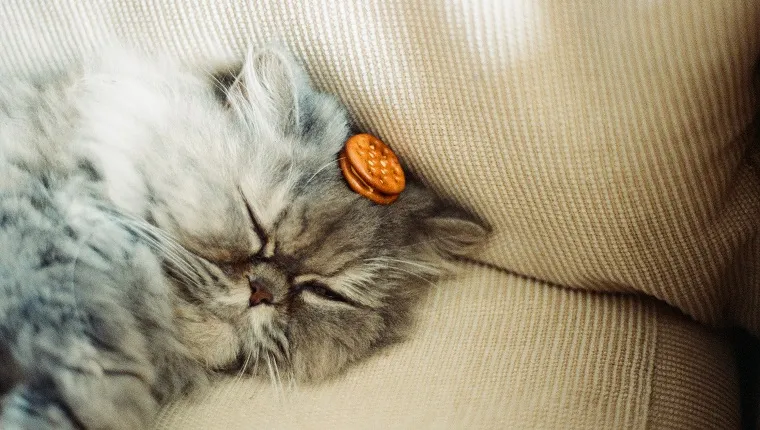Introduction
Ah, the humble cracker – a crunchy, savory snack beloved by humans around the world. But what about our feline friends? Can cats indulge in a nibble of this crispy treat, or should we keep the crackers all to ourselves? Join me as we unravel the mystery of whether crackers are safe for cats to eat and explore the potential risks and benefits.
Understanding Feline Nutrition
Before we dive into the world of crackers, let’s take a moment to understand the dietary needs of our feline companions. Cats are obligate carnivores, meaning their bodies are designed to thrive on a diet primarily consisting of meat. Unlike humans, cats lack the necessary enzymes to efficiently digest carbohydrates like those found in crackers. Therefore, their nutritional requirements differ significantly from ours.
What Are Crackers?
Crackers come in various shapes, sizes, and flavors, but they typically consist of flour, water, oil, and seasonings. Some crackers may also contain additives or flavorings that could be potentially harmful to cats. It’s essential to examine the ingredients list carefully before sharing any human food with your feline friend.
Can Cats Eat Crackers?
The short answer is no – cats should not eat crackers. While a small nibble of plain, unsalted cracker may not pose an immediate threat to your cat’s health, it offers little to no nutritional value and could lead to digestive upset. Cats lack the necessary enzymes to break down carbohydrates effectively, making crackers an unnecessary addition to their diet.
Risks of Feeding Crackers to Cats
Feeding crackers to your cat can pose several risks to their health:
Digestive Upset
Cats have sensitive stomachs, and introducing unfamiliar foods like crackers can lead to digestive upset, including vomiting and diarrhea.
Obesity
Crackers are high in carbohydrates and calories, neither of which are suitable for cats. Feeding crackers regularly can contribute to weight gain and obesity, which can lead to a variety of health problems, including diabetes and joint issues.
Nutritional Imbalance
Cats require a diet rich in protein and fat to meet their nutritional needs. Feeding crackers can disrupt this balance and may lead to deficiencies in essential nutrients.
Alternatives to Crackers
If you’re looking for a tasty treat to share with your cat, consider offering them small pieces of cooked, unseasoned meat or fish. These protein-rich snacks are not only delicious but also provide valuable nutrients for your feline friend.
Conclusion: Keep the Crackers to Yourself
In conclusion, crackers are not suitable for cats. While a small nibble may not cause immediate harm, it’s best to avoid feeding crackers to your feline companion altogether. Instead, opt for cat-friendly treats made specifically for their dietary needs. Remember, when it comes to your cat’s health, it’s always better to be safe than sorry.
So next time you reach for a cracker, remember to keep it out of reach of your curious kitty – they’ll thank you for it!
- Best Clay Alternatives for 2025 - April 19, 2025
- Best Seamless.ai Alternatives for 2025 - April 19, 2025
- Best UpLead Alternatives for 2025 - April 18, 2025



